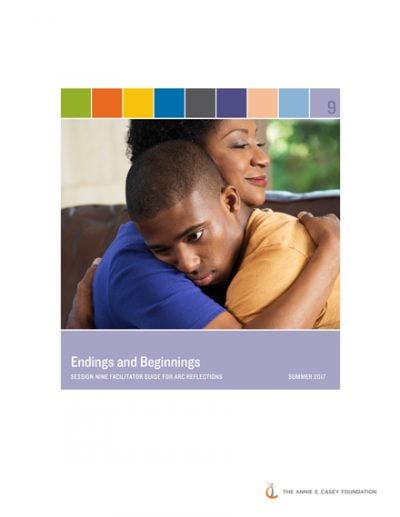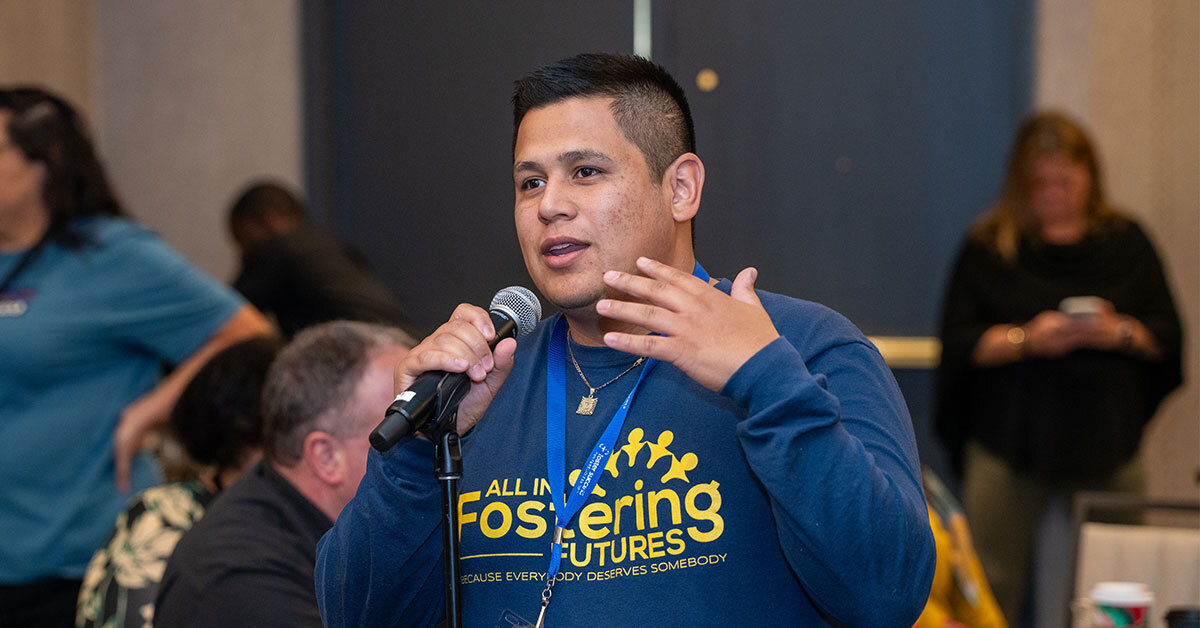Summary
The Casey Foundation and the Justice Resource Institute developed ARC Reflections, a training curriculum to develop foster parents and caregivers’ understanding of traumatic stress, increase their own emotional regulation and provide tools to support their parenting skills. Session nine — the final meeting — addresses a key challenge: managing a child or teen’s transition to reunification or some other form of permanence, in a safe, supportive way. Facilitators help group members discuss how a foster placement might end, examine real-world factors that influence how children and caregivers experience this phase and review helpful transition strategies. Participants also have an opportunity to process their own transition as the ARC Reflections training ends.
Every session includes a check-in to increase awareness and engagement of participants; a facilitator checklist of session materials; practice activities and take home log for participants; a representative case study to follow throughout the sessions; and reflective questions for participant growth and understanding.
Download the presentation for this session







